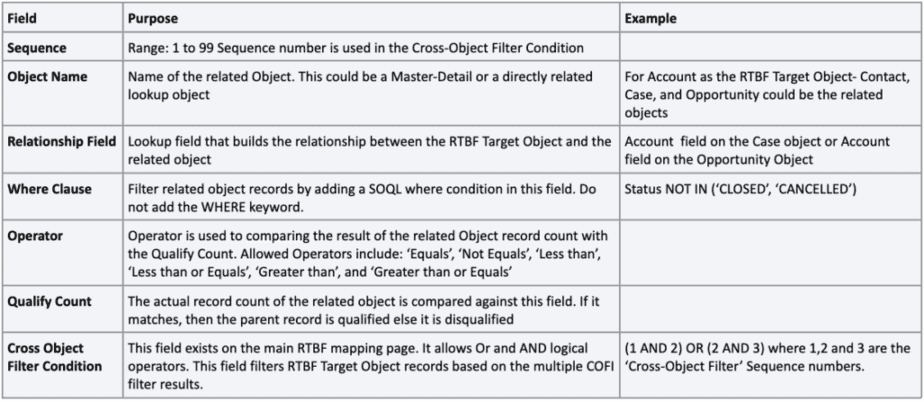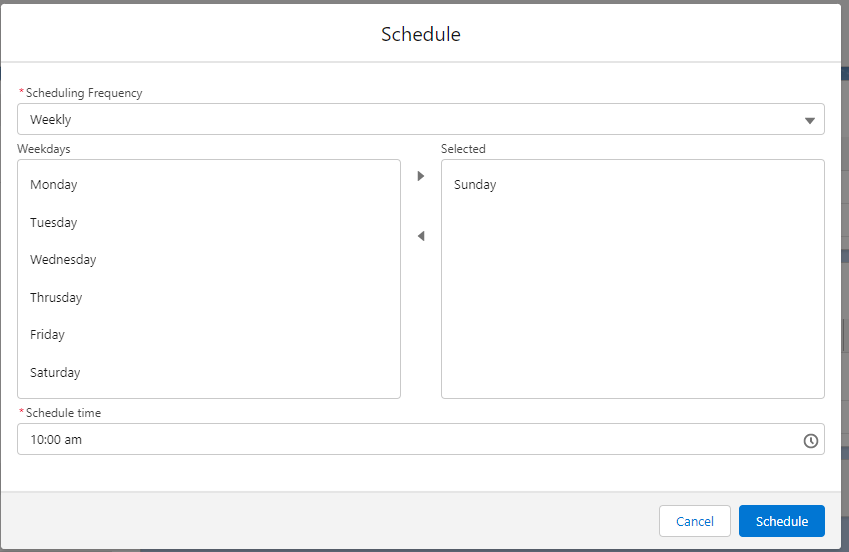Cross-Object Filter(COFi):
Cross-Object Filters (COFi) allow you to enforce a Retention policy based on related object records. Admins can create filtering logic based on objects directly related to the primary object. The relationship can be Master-Detail or through a lookup field. The intuitive user interface of COFi makes it quick and easy to create and maintain such cross-object filtering-based Retention rules.
This functionality allows retention policy enforcement based on related object records. Admins can create filtering logic based on objects directly related to the primary object. The relationship could be Master-Detail or through a lookup field. The intuitive user interface of COFi makes it quick and easy to create and maintain such cross-object filtering-based Retention rules.
Cross-Object Filter – Screenshot

Cross-Object Filter Fields

Real-World Example of a COFi-based Retention:
Requirement: Identify all Accounts that have maintained an Inactive status for the last 6 months, and there are no open Cases and no Opportunities that exist for these Accounts. All these identified accounts and their related Assets need to be masked.
Step 1: Build a Retention Rule for the Account Object.
Use SOQL Where Clause to influence the Retention job to only pick Accounts that were inactivated before 60 days.

Step 2: Define a Data Retention Mapping that also includes COFi-based filters.

Step 3: The Automated Retention Rule will run every Sunday at 10:00 AM.

The Automated Retention processing activities allow you to:
Fetch all the Accounts that are inactive for 60+ days
Qualify Account fetched in #1 to ensure that there are No Open Cases and No Opportunities
Fetch Assets related to qualified Accounts (List of Accounts from #2 above)
Accounts and Assets are masked based on the Field mapping as defined in the RTBF Mapping


